- Learning time
- 20 minutes
- First play time
- 80 minutes
Fast Sloths
Designed by: Friedemann Friese
Sloths are not naturally speedy. But as Fast Sloths, you don’t need to be. Instead of bothering to exert your own energy, you utilise others to move you around, jumping on backs or being thrown across fields as you manipulate the local animals to do your bidding. Your goal is collect eight leaves of your own colour – essentially, this is a race, with the laziest set of competitors in the history of racing.
The board shows the landscape you’ll be traversing, broken into hexes that denote the different terrain: plains, water, forest, hills, and the (impassable) grey mountains. There are also some campsites dotted here and there. The only significance of the tree hexes is that a leaf from each player is placed there before the game begins. Players choose a starting position for their sloth and then the game commences.
Your turn is broken into three steps: draw cards, move an animal, check hand limit.
Drawing cards is simple – you pick up some cards and add them to your hand. There will be six available stacks of animal cards, each deck representing both an animal, and how far they can move. You can’t take more than one of any animal type, but you need to weigh up which cards you do take, as we shall see.
Moving an Animal is optional, but as the game is a race, it’s helpful to move now and again. When you move you play one or more animal cards of the same type, adding up the total number value, and have them carry you as they move up to that many spaces around the board. If you’re in the same hex, or next to a hex of the animal in question, they will pick you up and carry you along. They can drop you off on (or next to) wherever they stop (-or on the way to where they stop) and if that space contains a leaf of your colour, you get to pick it up! The animals all move slightly differently: donkeys will go through forests, fields and hills, for instance, but balk at water. The elephant only moves along plains and water – and slowly! – but then they can throw you three spaces with its trunk. The unicorn – yes, there’s a unicorn – can go almost anywhere, even through the mountains – but you can only ever play one unicorn card at a time, so although it’s very powerful it comes with limitations. Our favourites are the ants, who make a chain and then pass you along it to the end. What amazing powers of persuasion you have! (The game recommends a ‘starter set’ of particular animals, but also provides some alternatives to mix things up a bit – including the human, who only goes along the path from campsite to campsite…)
After that, you check your hand limit according a small board in front of you where you store your leaves. If you’ve too many cards, you have to lose some until you reach the current maximum.
That’s the game – as soon as any player reaches 8 leaves (or 9! it can happen) the current round is played out so everyone’s had the same number of turns – then the sloth with most leaves wins. Often there are ties, so this is broken by comparing who has the highest total numbers on their remaining cards. If that is still a tie, then as the rulebook says, ‘You are all far too lazy to care’. Celebrate your shared triumph of inertia!
The guru's verdict

-
Take That!
Take That!
There's room for it - you can grab animals other players were clearly planning on using, or even move an animal without it picking you up at all. Not the best use of your cards though; so most of the Oh no! moments are caused inadvertently.
-
Fidget Factor!
Fidget Factor!
Low. There might be the occasional pause whilst someone reconfigures their plans, but there's nothing here to make the game a grind.
-
Brain Burn!
Brain Burn!
It's exceedingly tactical: how best to utilise your cards on a board that's constantly changing? If you're able to remember what animal cards the other players pick up, that doesn't hurt.
-
Again Again!
Again Again!
If the game has a certain repetition to it - it's always a race, and the pick-up-cards/play-cards pattern will feel very familiar - it balances it rather nicely with both the constant flux of the board and the variety of different animals you can use in a given game.



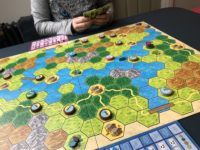
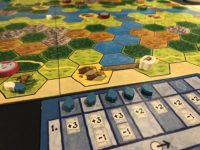
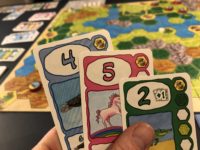



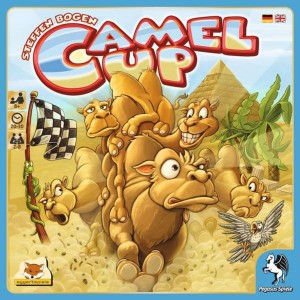
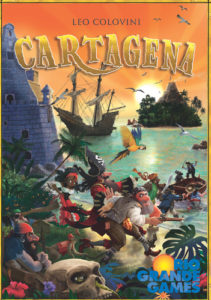
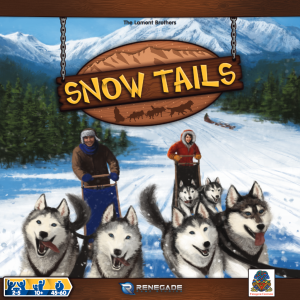

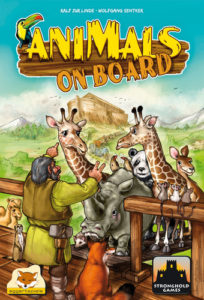
Sam says
Fast Sloths reminds me of the classic Ticket to Ride: so easy to play, and yet so much fun out of a simple premise. Pick up cards, play cards. But because of how the animals all move, and where they end up on the varied landscape, it's impossible to predict what'll happen, and you've no guarantee that the crocodile you so desperately need to move you will still be close enough to do so when your next turn comes around. It is a race; but it's also a puzzle, and combines the two rather well: giving you enough of a challenge to be engaging without slowing the game down to a head-scratching halt. Just a lot of fun, and a game I'm very happy to have in the house.